January 24, 2024 | by Silvana Jakupovic, ND
Have you been hearing a lot about mushroom capsules lately and wondering what that's all about? Well, you're not alone. The popularity of mushroom capsules has been on the rise, with many people turning to these natural mushroom supplements for their powerful health benefits. In this blog, we'll take a closer look at four mushroom capsules - Lion's Mane, Reishi, Cordyceps, and Chaga - that show promising potential to support your mental and physical health.
What are Mushroom Capsules?
Mushroom capsules are one of the most common forms of medicinal mushroom supplements, alongside mushroom powders. Mushroom capsules are all created differently depending on the company that makes them, so let’s discuss the capsules produced by Eversio Wellness. Eversio Wellness creates and distributes premium, therapeutic-grade mushroom capsules containing ONLY the fruiting body of mushrooms for maximum potency and concentration of beneficial compounds.
This means there is no grain, growing substrate, or other fillers inside of the capsules as they do not contain the same high percentages of key bioactive compounds that fruiting bodies do. Additionally, it is important to keep in mind what the capsules themselves are made of as they may contain gelatin or wood cellulose.
Eversio Wellness is the first to use USDA Organic certified fungi-based capsules made from organic pullulan which is natural, vegan, halal, and kosher. This means that the mushroom capsules produced by Eversio Wellness are free of allergens, have a prolonged shelf life, provide optimal prevention of oxidation, have an excellent moisture barrier, and are 100% eco-friendly and organic.

What Are Mushroom Capsules Good For?
There are many types of healthy mushrooms with beneficial compounds, but medicinal, or functional, mushrooms contain the highest levels of antioxidants, b-glucans, terpenoids, and other constituents that may allow us to achieve optimal health and vitality. Medicinal or functional mushrooms are biological response modifiers, also known as immunomodulators, and they work by targeting disease-causing mechanisms [1].
When used for prolonged periods of time as preventative medicine, they boost immune health and prevent the onset of various medical conditions. This action is one of the reasons why medicinal mushrooms have become a traditional remedy in cancer therapy in conjunction with conventional care [2]. In addition to protecting against cancer development, medicinal mushrooms have illustrated protection against viral, bacterial, fungal, and parasitic infections.
Although their claim to fame is their immune-boosting capabilities, medicinal mushroom caps may also be used to support brain and cardiovascular health, and cognition, improve exercise tolerance, prevent oxidative stress, and improve skin health. Additionally, a handful of mushrooms are often used in the treatment of mood disorders or to support mental health. The health benefits of mushrooms are endless!
Which Mushroom Capsules Are Good for Mental Health?
There are several types of mushrooms traditionally used for their potential mental health benefits. We will focus on Lion's Mane, Reishi, Chaga, and Cordyceps to help you make an informed decision on which mushroom capsules to try.

Lion’s Mane Mushroom Extract
Lion’s mane, or Hericium erinaceus, is most commonly associated with improving cognition, and brain fog, supporting brain health, and preventing the development of neurodegenerative diseases. One clinical trial assessed Lion’s Mane’s ability to improve factors of depression, anxiety, and sleep in a group of overweight patients [3]. The serum levels of brain-derived neurotrophic factor (BDNF) and its pre-cursor, pro-BDNF, were assessed before and after 8 weeks of supplementation.
After 8 weeks, the patients presented with increased serum levels of pro-BDNF, along with improvements in the severity of their depression, anxiety, and sleep quality [3]. The mechanisms of action of BDNF are far from simple, but it has been found that decreased BDNF or dysfunction in its processes can cause decreased excitatory neurons, which may potentially lead to depression [4]. Thus, Lion’s Mane holds the potential to be one of many mushrooms for depression.
Lion’s Mane contains a class of constituents known as terpenes. Hericenones is one of many terpenes found in Lion’s Mane and it has been found that it can pass the blood-brain barrier [5]. Thus, it can exert anti-inflammatory and antidepressant-like effects on the brain, making it useful in the amelioration of depression, anxiety, and sleep disorders [5]. Additionally, it has been found to stimulate the growth of brain cells, which may assist in its ability to improve neurocognitive impairment [5].

Reishi Mushroom Extract
The best mushroom for anxiety and depression is arguably Reishi or Ganoderma lucidum. Polysaccharides extracted from Reishi have expressed antidepressant effects in many research studies [6]. One study found that Reishi exhibited antidepressant and anxiolytic effects by antagonism (blocking) of 5HT2A receptors, much like certain antidepressant pharmaceuticals [7].
Research suggests that activation of this receptor may lead to mental health disorders, including depression, anxiety, OCD, and insomnia [8]. Thus, the use of Reishi may alleviate symptoms of depression and combat the comorbidities that tend to develop alongside it, such as anxiety and sleep disruptions.
Mental health issues are often linked to difficulties with sleep, whether it be excessive worrying or racing thoughts, many individuals experience a lack of restful sleep. One study found that Reishi was able to increase total sleep time and the length of non-rapid eye movement sleep (NREM sleep), resulting in a more restful sleep [9].

Chaga Mushroom Extract
Much like Reishi, Chaga has illustrated antidepressant-like effects by antagonism of 5HT2A receptors, among other mechanisms [10]. Chaga also exhibited anxiolytic-like effects in situations of memory-dependent or stress-induced anxiety, meaning it may assist those who experience situational anxiety rather than generalized anxiety [10].

Cordyceps Mushroom Extract
Cordyceps has historically been used as a complementary therapy to treat depression and anxiety because of its powerful anti-inflammatory actions [11]. In one study, Cordyceps mushroom extract exhibited anti-depressive and anxiolytic effects by reducing inflammation and modulating certain neurotransmitters [11].
The Cordyceps formulation significantly reduced levels of glutamate in the amygdala of the brain [11]. Currently, there is increasing evidence of a possible relationship between glutamate and the development of depression; dysregulation of glutamate in the brain and gastrointestinal tract may play a role in the underlying pathophysiology of depressive disorders [12].
Research shows that ATP (adenosine triphosphate) reduction, and its relation to oxidative stress, are linked to mental health [13]. ATP is our body’s main energy supply source and depleted levels have been seen in mood disorders. Cordyceps has been found to exhibit enhancement of ATP generation capacity because of its antioxidant capabilities leading to improvement of cellular and mitochondrial antioxidant statuses, which would lead to improved ATP generation [14].
When is the Best Time to Take Mushroom Capsules?
The best time to take mushroom capsules is dependent on their desired effect. For those using medicinal mushrooms to boost energy, including them in your morning routine would work best, or even during that afternoon slump. If you are desiring a calming effect or improved sleep quality, taking them in the evening or before bed will likely do the trick. If you’re looking to maintain blood sugar balance throughout the day, taking the capsules with your meals may be a better idea.
Overall, the time at which you take your mushroom capsules is definitely dependent upon the type of benefit you’re hoping to achieve!

Where to Buy Mushroom Capsules?
Although the market for medicinal mushrooms is wide, it is important to be mindful of what is inside the products you are buying. If a mushroom product contains grain products, this should be listed in their “other ingredients.” If you find the words “full spectrum”, “mycelial biomass”, or “extracellular compounds” on the label, this means the product is made from the grain substrate the mushrooms are grown on, and potentially the primordia and fruiting body, all combined and often not in extract form. Full spectrum is often advertised as a beneficial aspect of the product by some companies, but, under the surface, this means that the product is watered down, and you’d need to consume much more of it to achieve the same benefits as you would from a product containing 100% fruiting body.
Eversio Wellness carries 100% fruiting body-only mushroom extracts, and they consistently practice transparency with their consumers by sharing the COAs (Certificate of Analysis) of each product. The COAs reassure consumers that the percentage of compounds that are claimed to be in the products is scientifically confirmed through lab testing. Not only does the COA confirm the percentages of the beneficial constituents, but it also tests the heavy metal and microbial contents so you can be sure that your mushroom product is safe.
If you are interested in using medicinal mushrooms to support your mental health, take a look at the various mushroom caps that Eversio Wellness has. Explore our collection of mushroom capsules.
We hope you have found this article informative. If you have any questions or comments, please feel free to leave them in the comment section below!

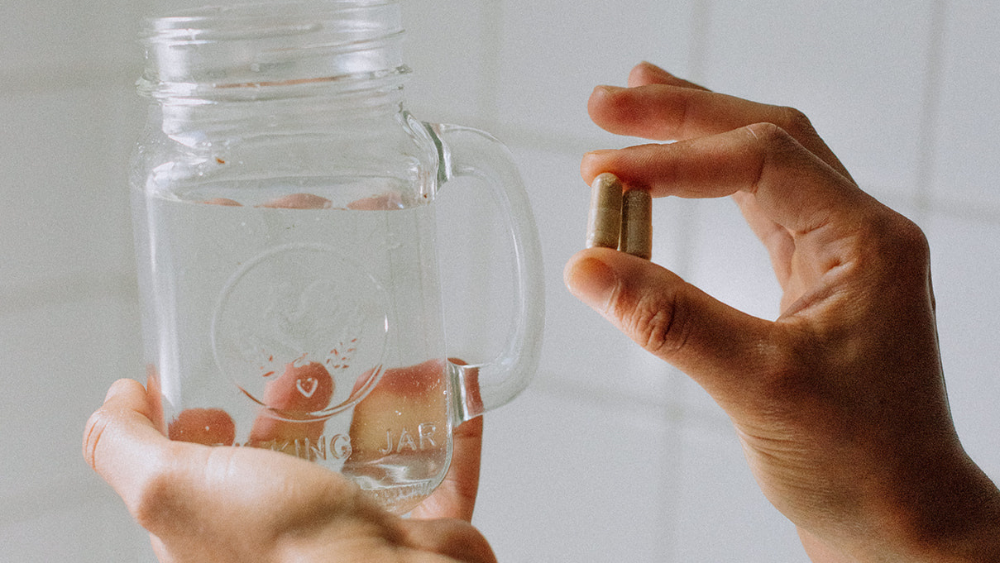
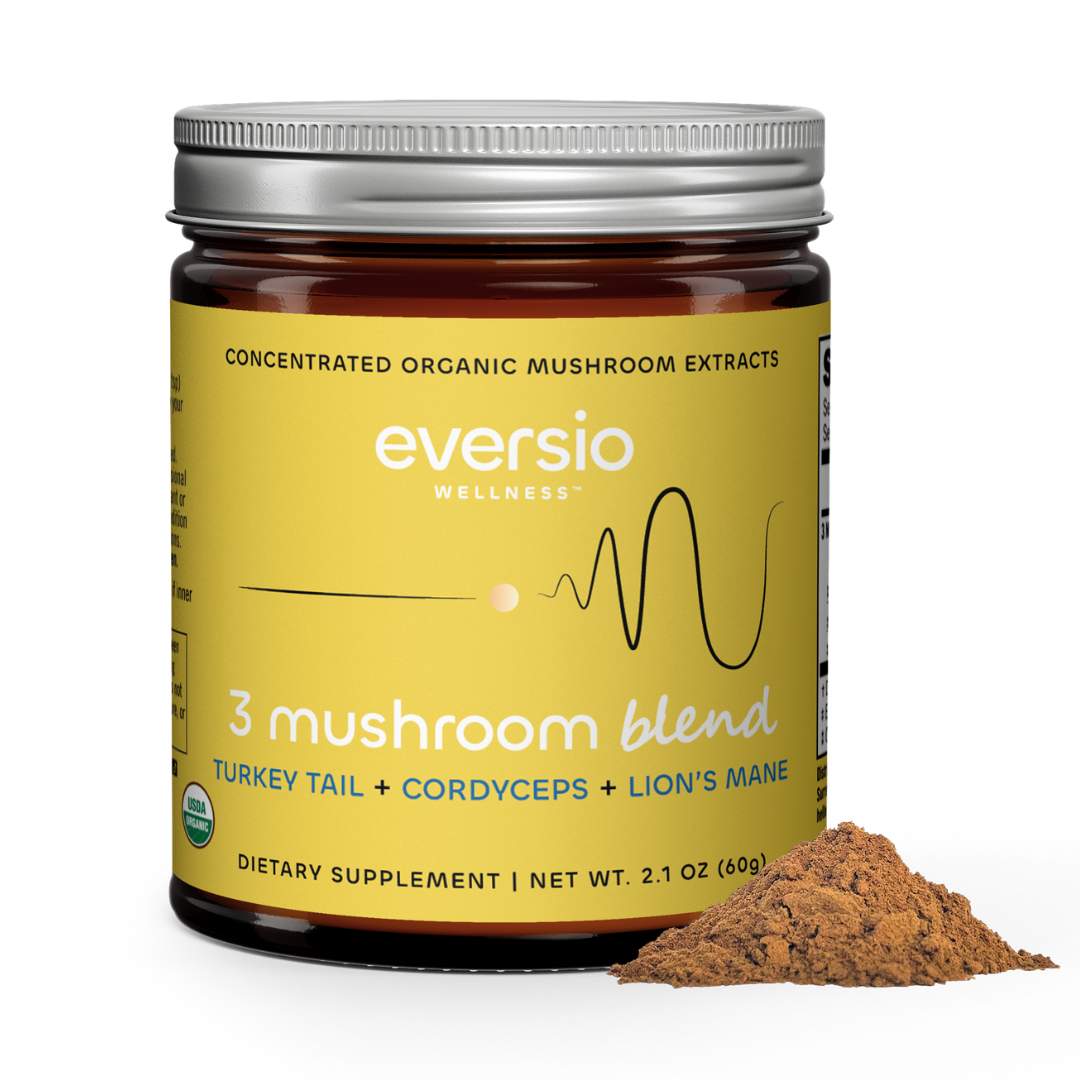
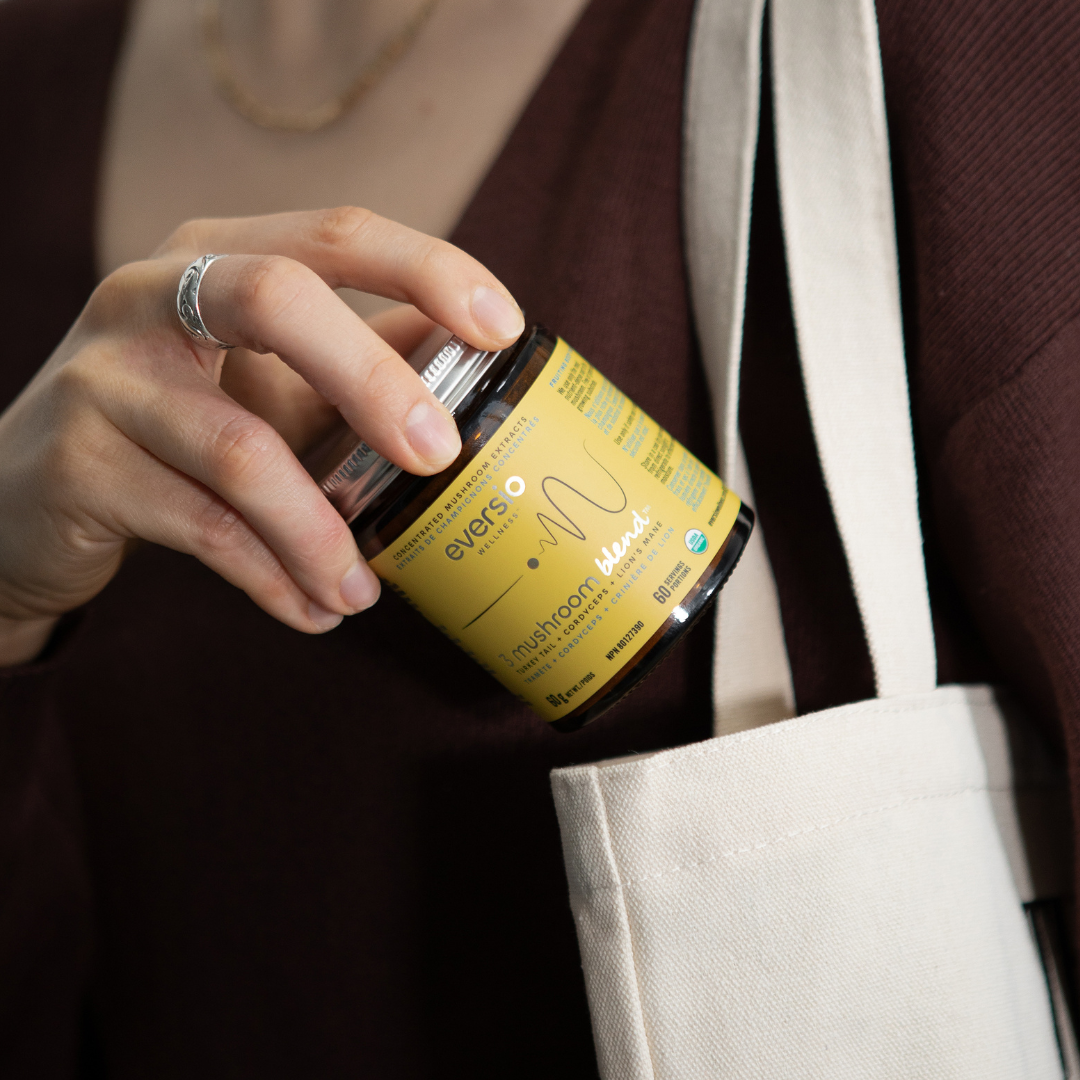

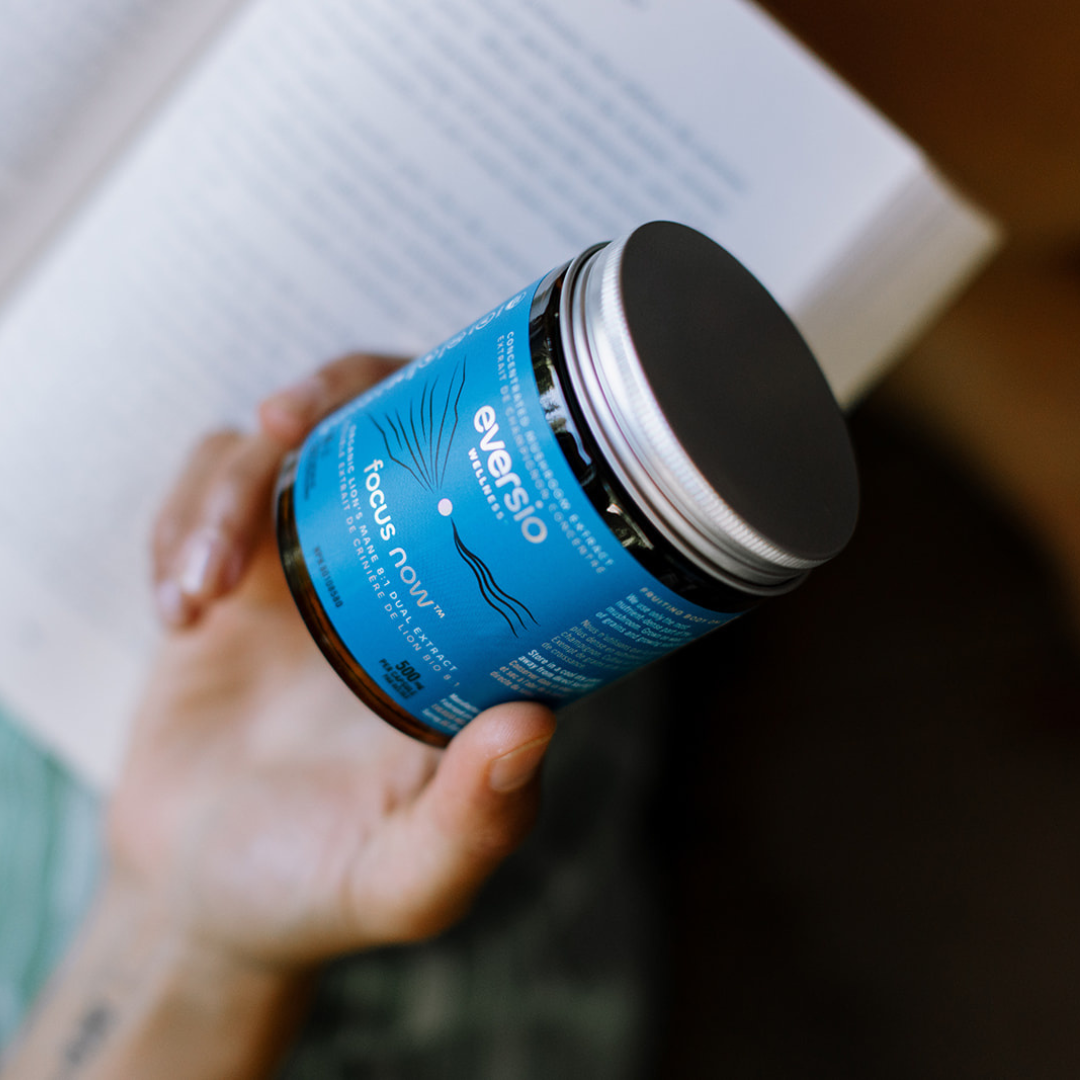
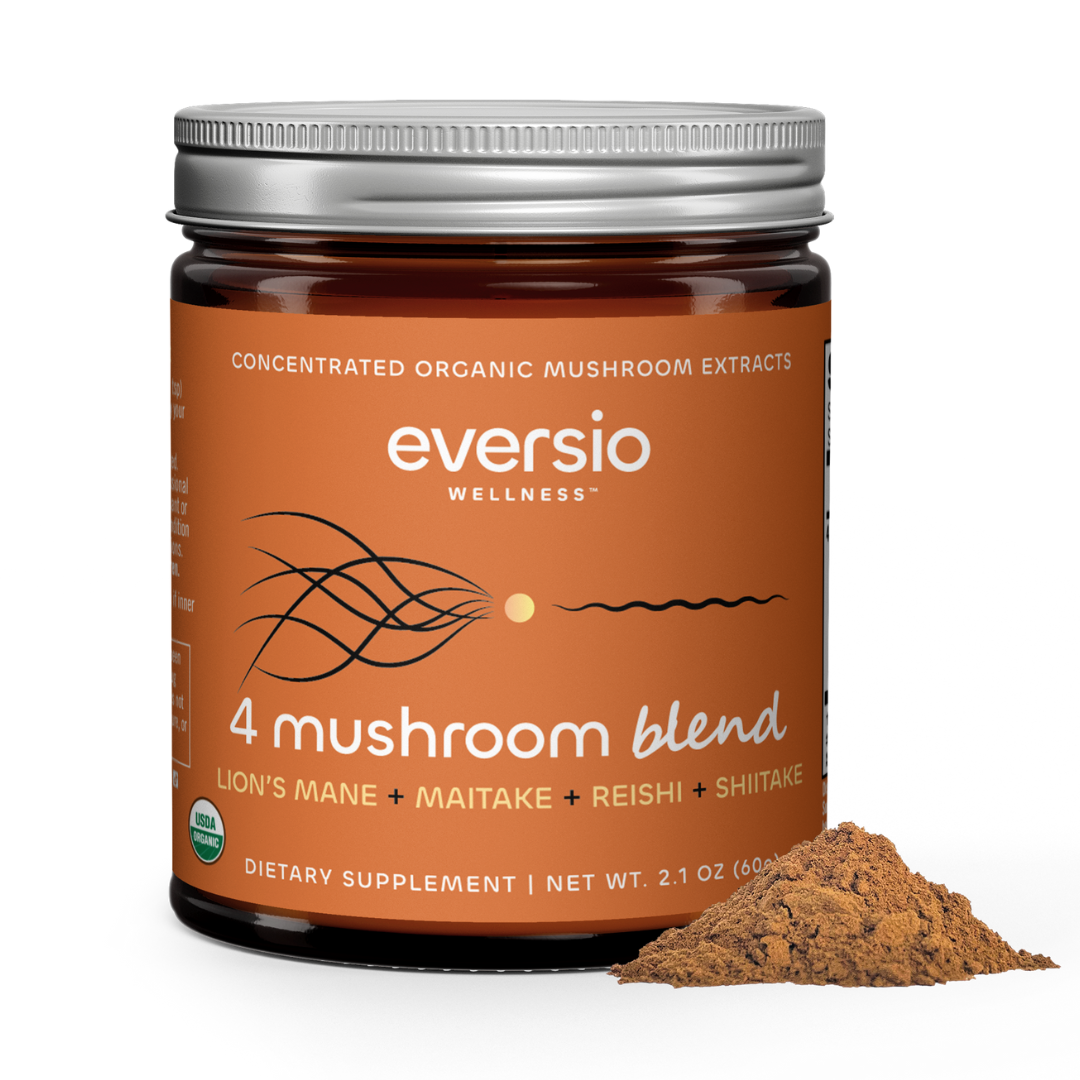
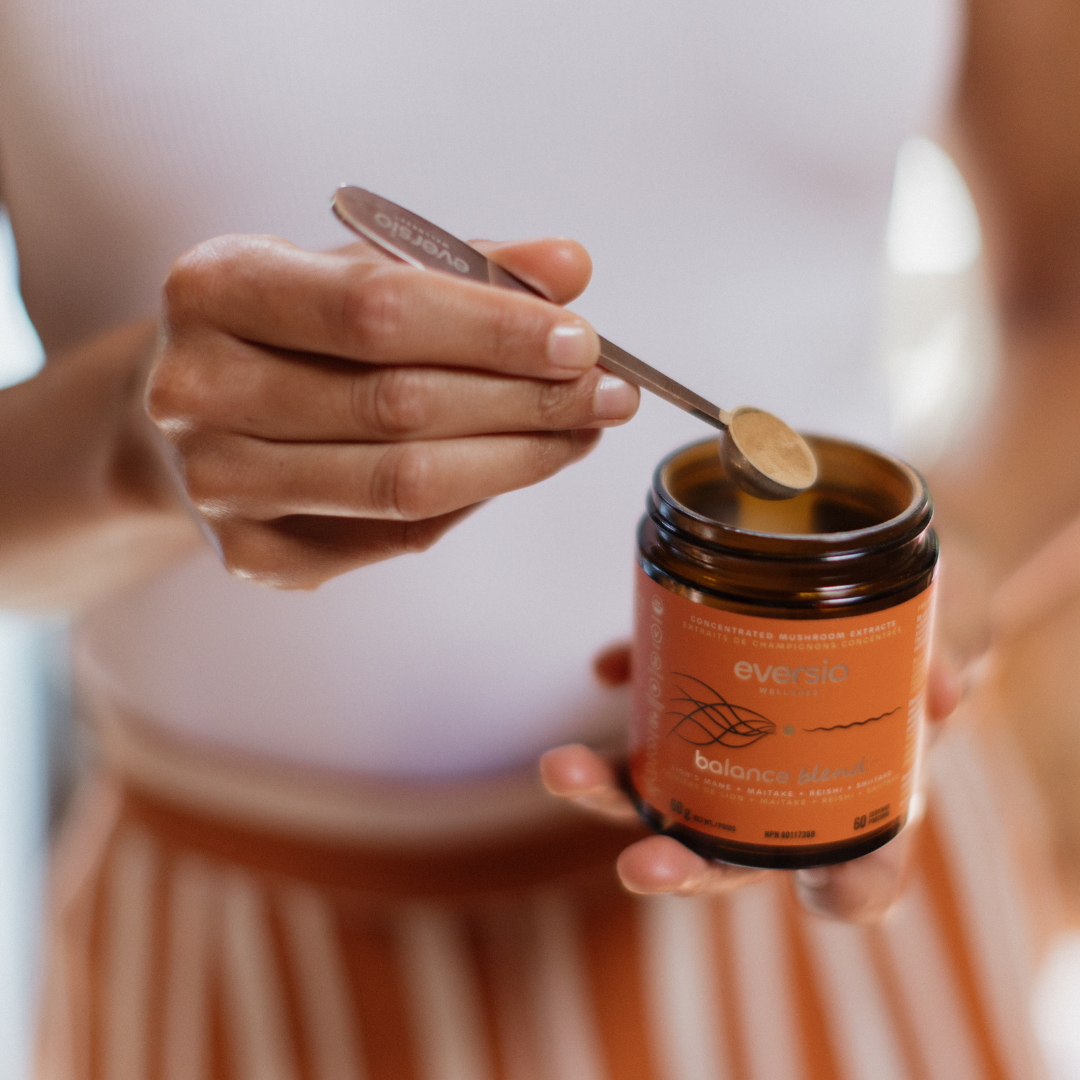
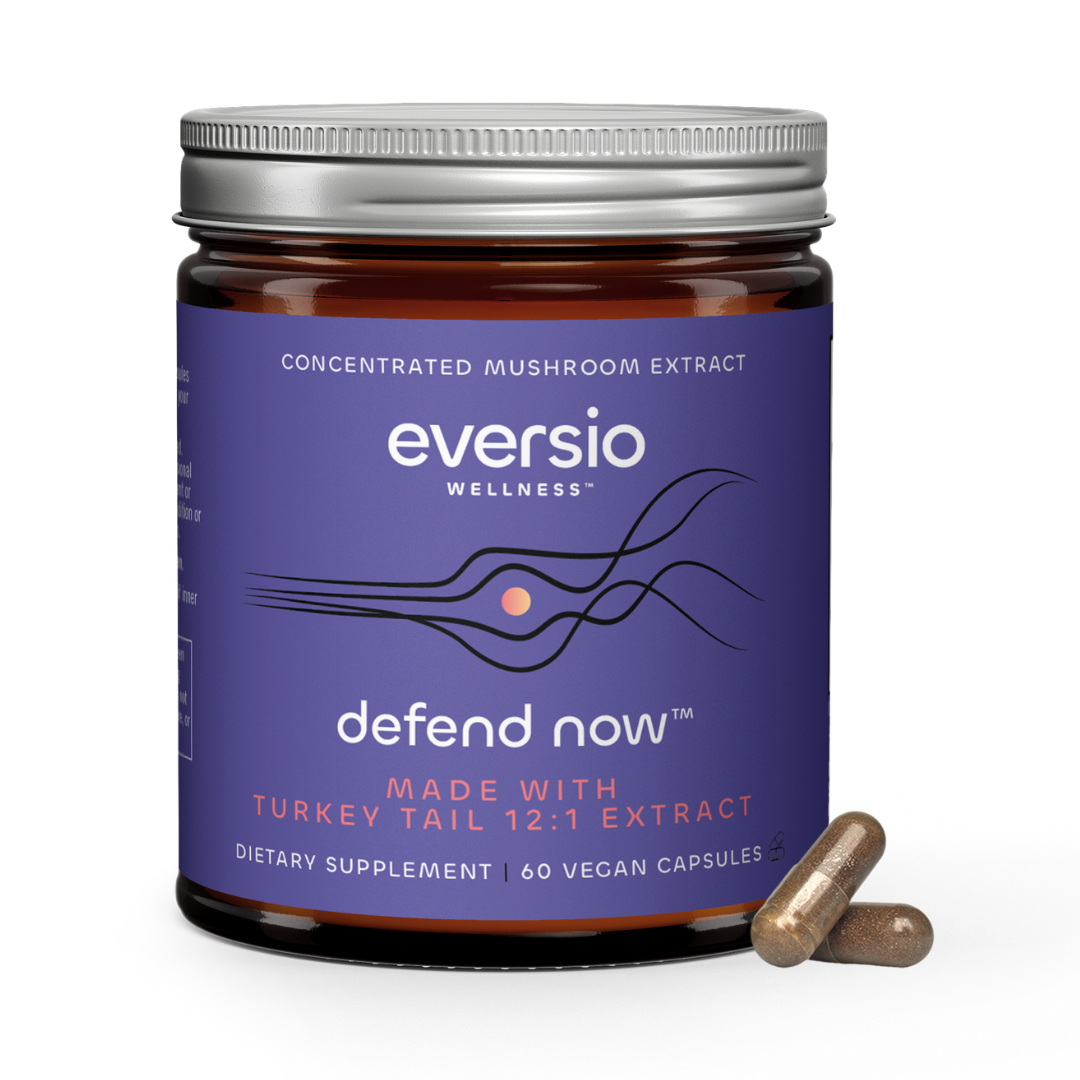
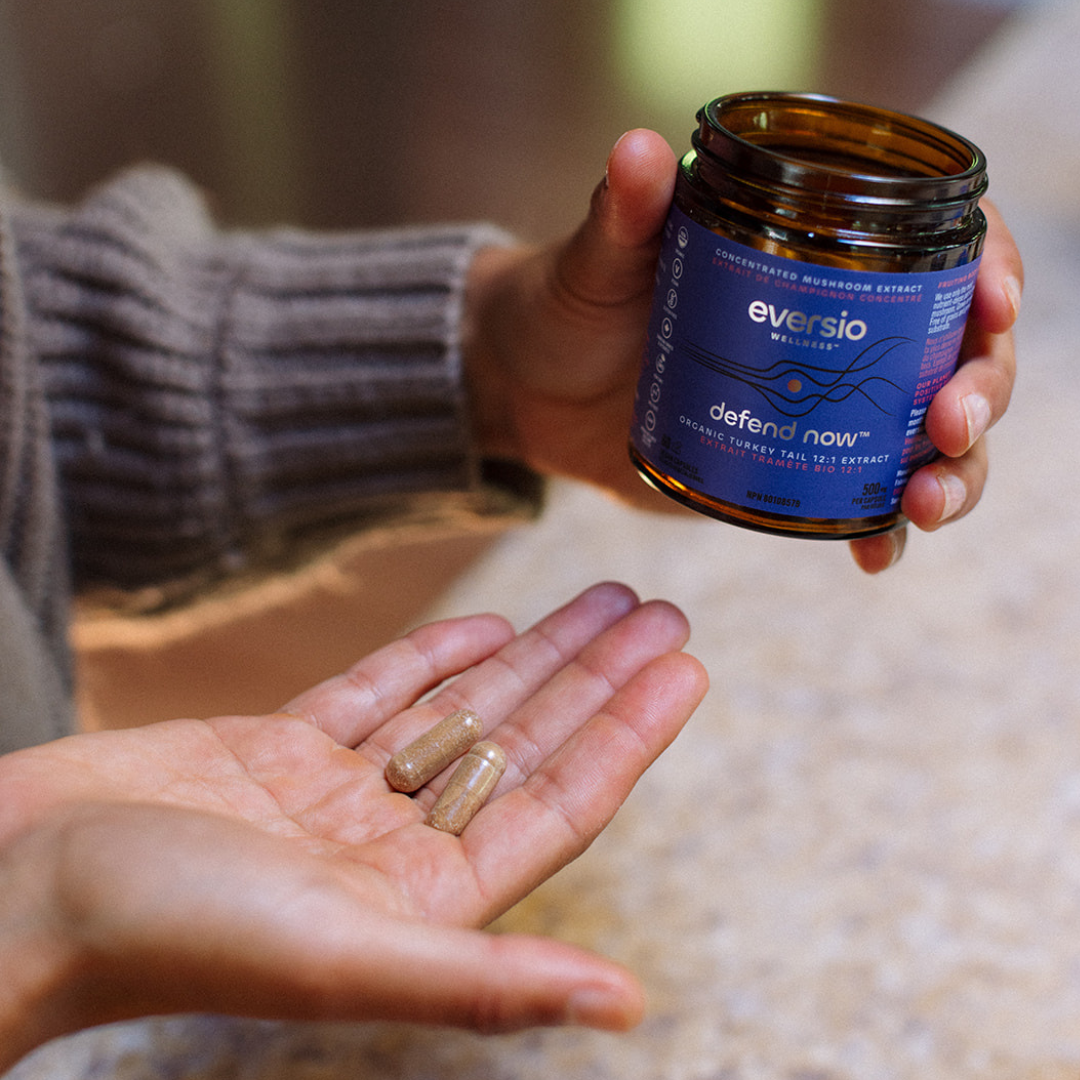
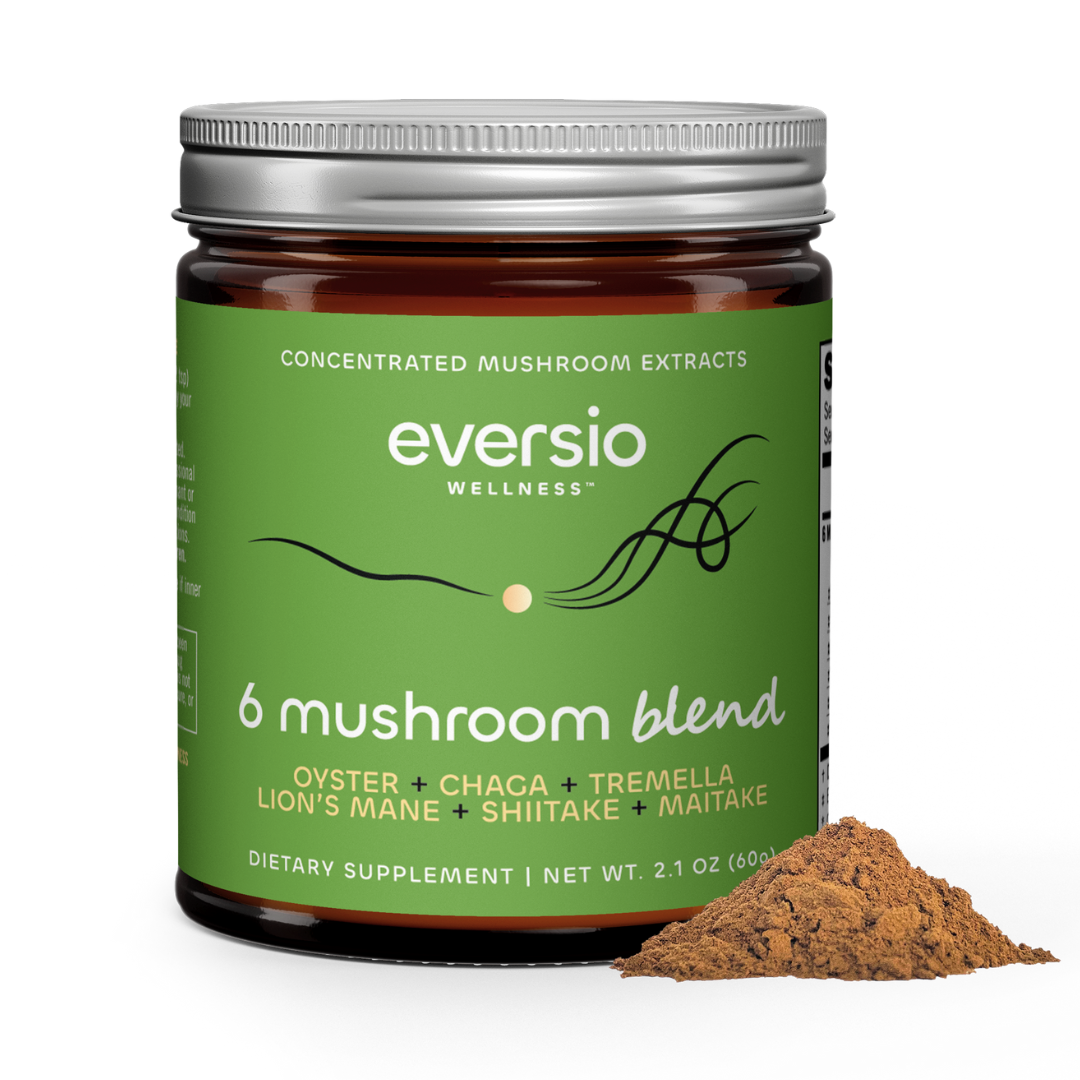
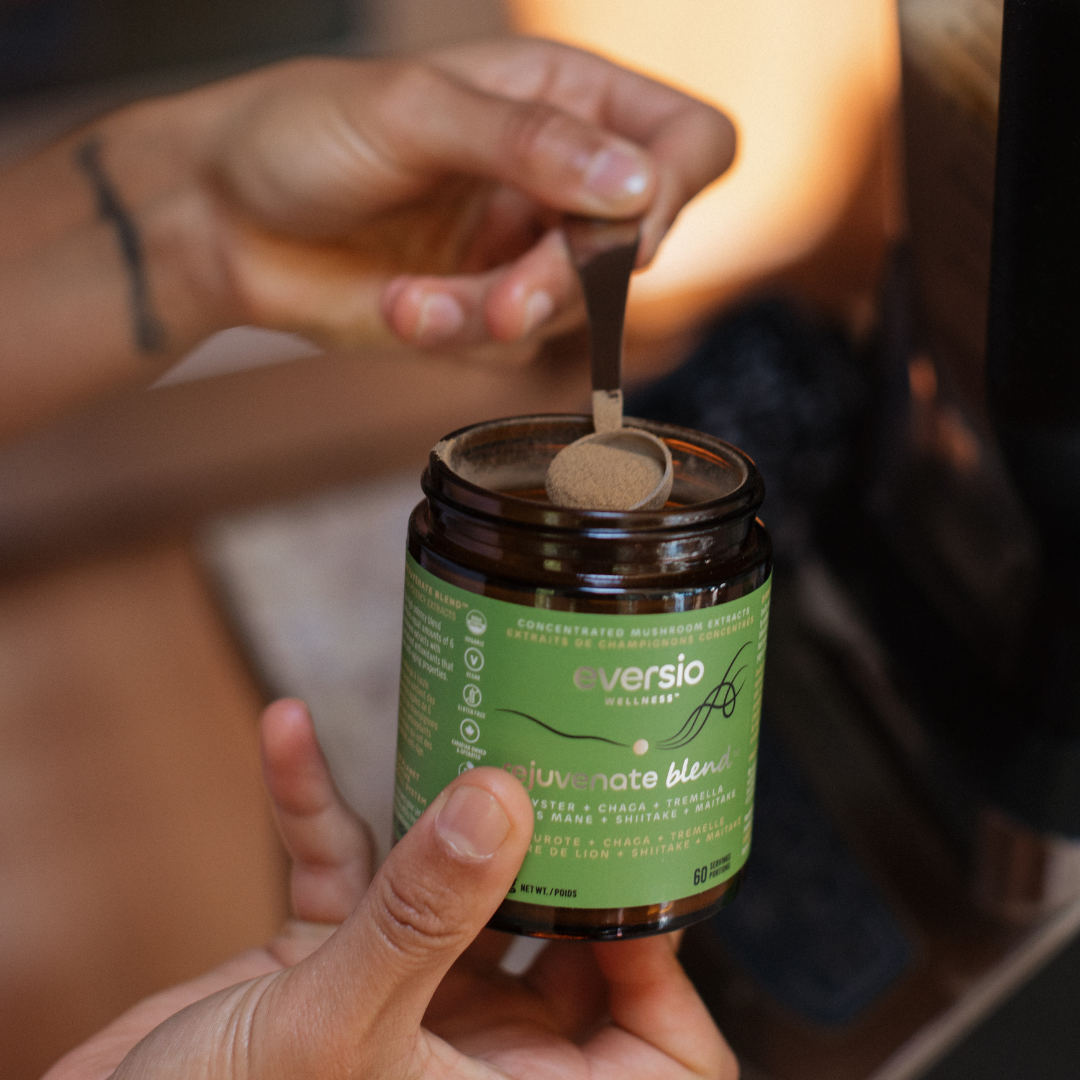
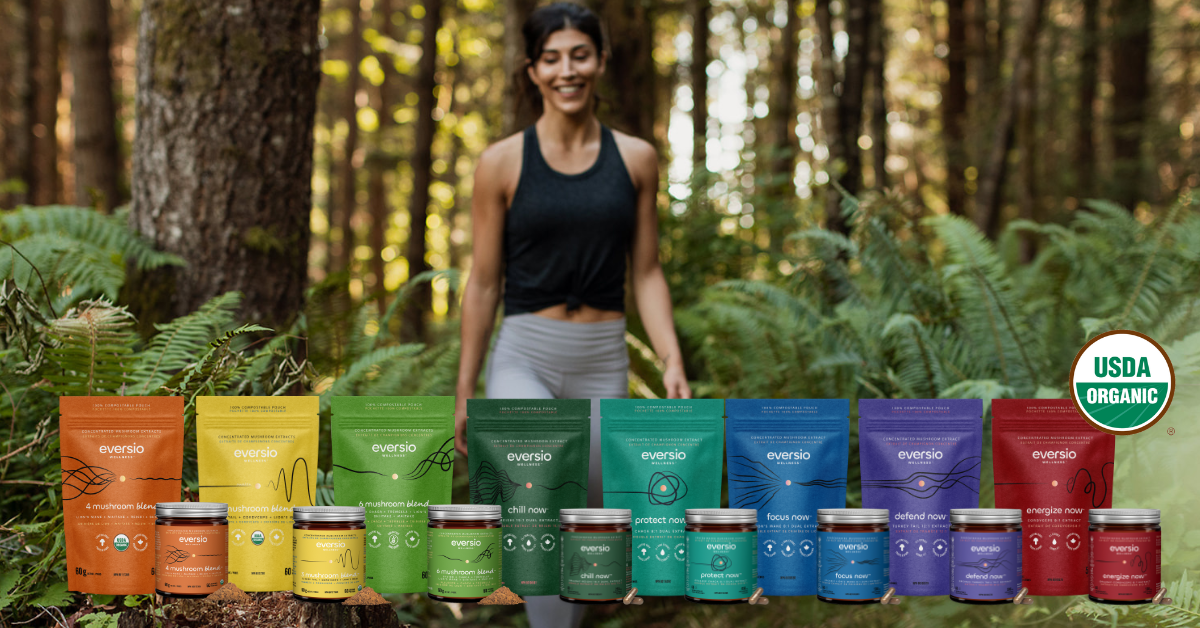

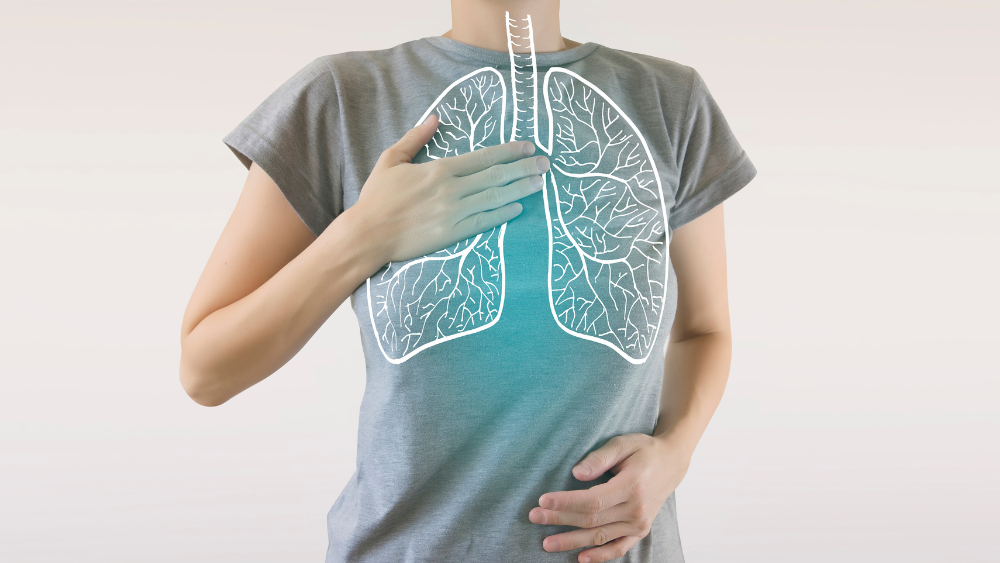





Leave a comment
All comments are moderated before being published.
This site is protected by hCaptcha and the hCaptcha Privacy Policy and Terms of Service apply.